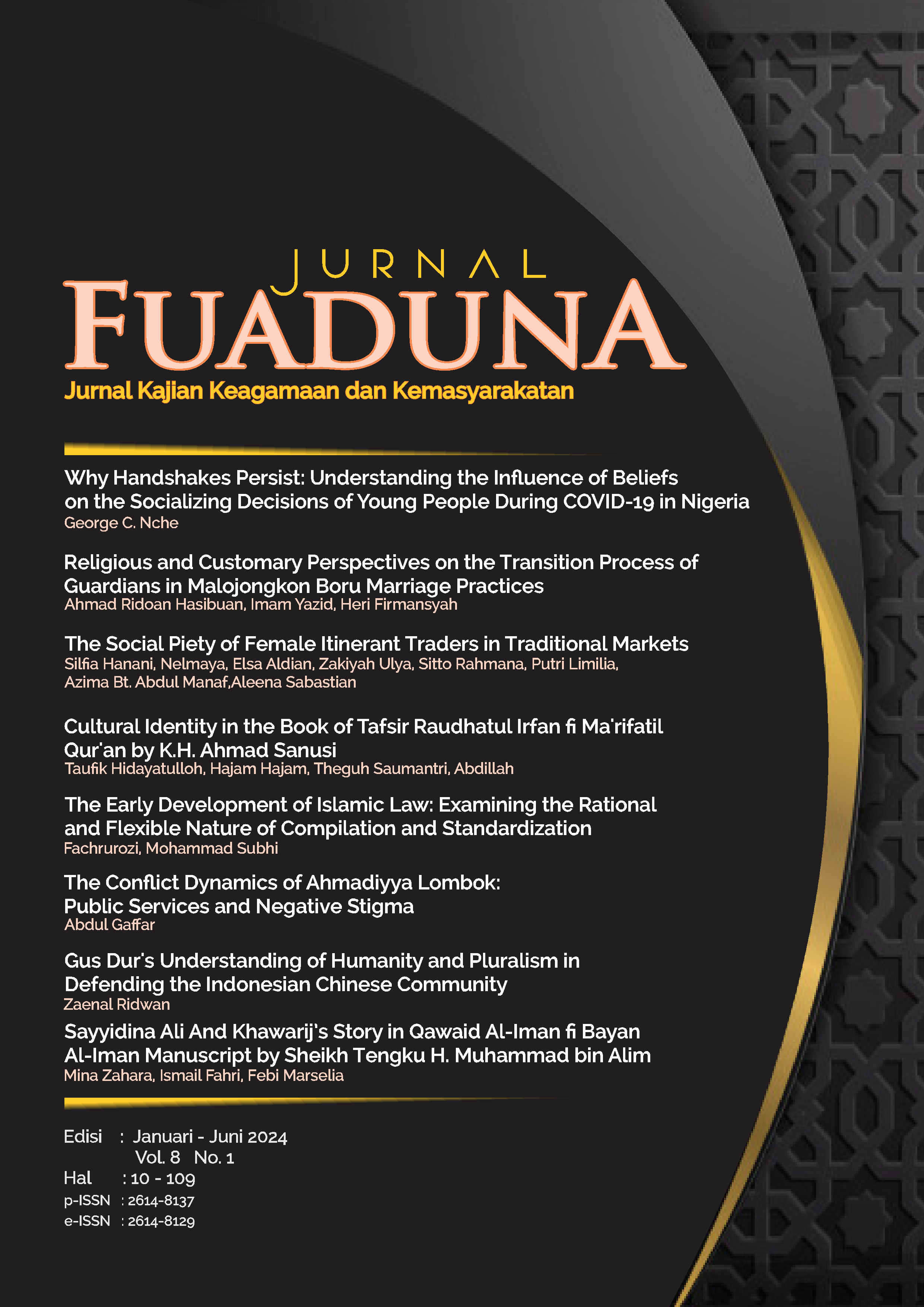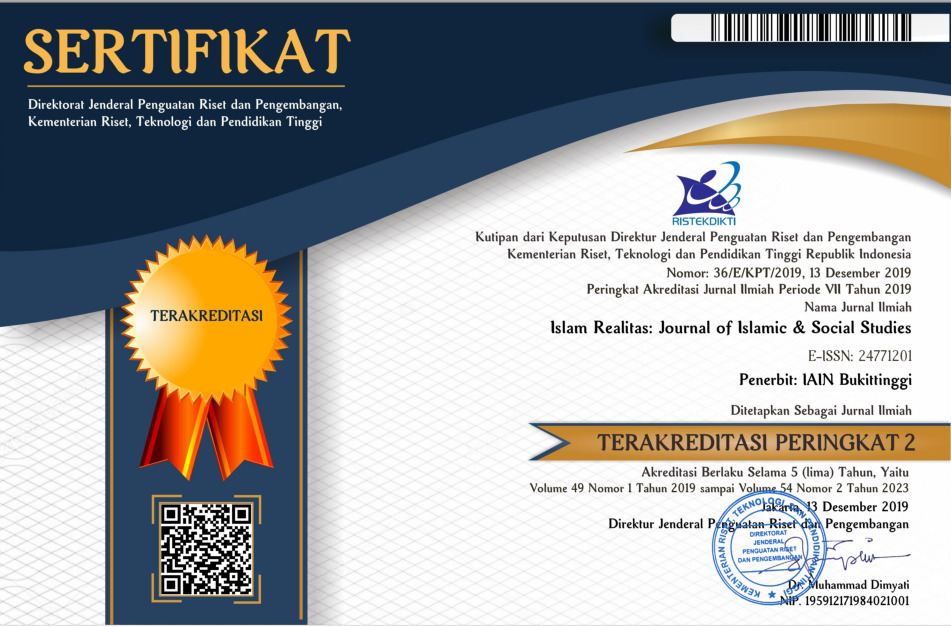Religious and Customary Perspectives on the Transition Process of Guardians in Malojongkon Boru Marriage Practices
DOI:
https://doi.org/10.30983/fuaduna.v8i1.8530Abstract
One of the most common issues in marriage is the marriage contract, which might take days to finalize. It happens when a guardian refuses to marry off his daughter because he disapproves of the marriage. Therefore, Malojongkon Boru is frequently practiced to get the approval of the woman's guardian or father. The subject of discussion for this study is the transition of the nasab guardian to the judge guardian in the practice of Malojongkon Boru. The focus of the problem in this study is the perspective of Indonesian Ulema Council (MUI) and Traditional Leaders on the transition of nasab guardian to the judge guardian in Malojongkon Boru marriage practice. This study is a field research with a qualitative approach. The data sources are classified into field data as primary data, including interviews and documentation, and literature data as secondary data. The findings indicate that MUI and Traditional Leaders view the transition of marriage guardians in the practice of Malojongkon Boru marriage as conducted in conformity with Islamic law.
Downloads
Published
How to Cite
Issue
Section
Citation Check
License
Copyright (c) 2024 Ahmad Ridoan Hasibuan, Imam Yazid, Heri Firmansyah

This work is licensed under a Creative Commons Attribution-ShareAlike 4.0 International License.
Authors who publish with this journal agree to the following terms:
- Authors retain copyright and grant the journal right of first publication with the work simultaneously licensed under a Creative Commons Attribution-ShareAlike 4.0. that allows others to share the work with an acknowledgment of the work's authorship and initial publication in this journal.
- Authors are able to enter into separate, additional contractual arrangements for the non-exclusive distribution of the journal's published version of the work (e.g., post it to an institutional repository or publish it in a book), with an acknowledgment of its initial publication in this journal.
- Authors are permitted and encouraged to post their work online (e.g., in institutional repositories or on their website) prior to and during the submission process, as it can lead to productive exchanges, as well as earlier and greater citation of published work (See The Effect of Open Access).





